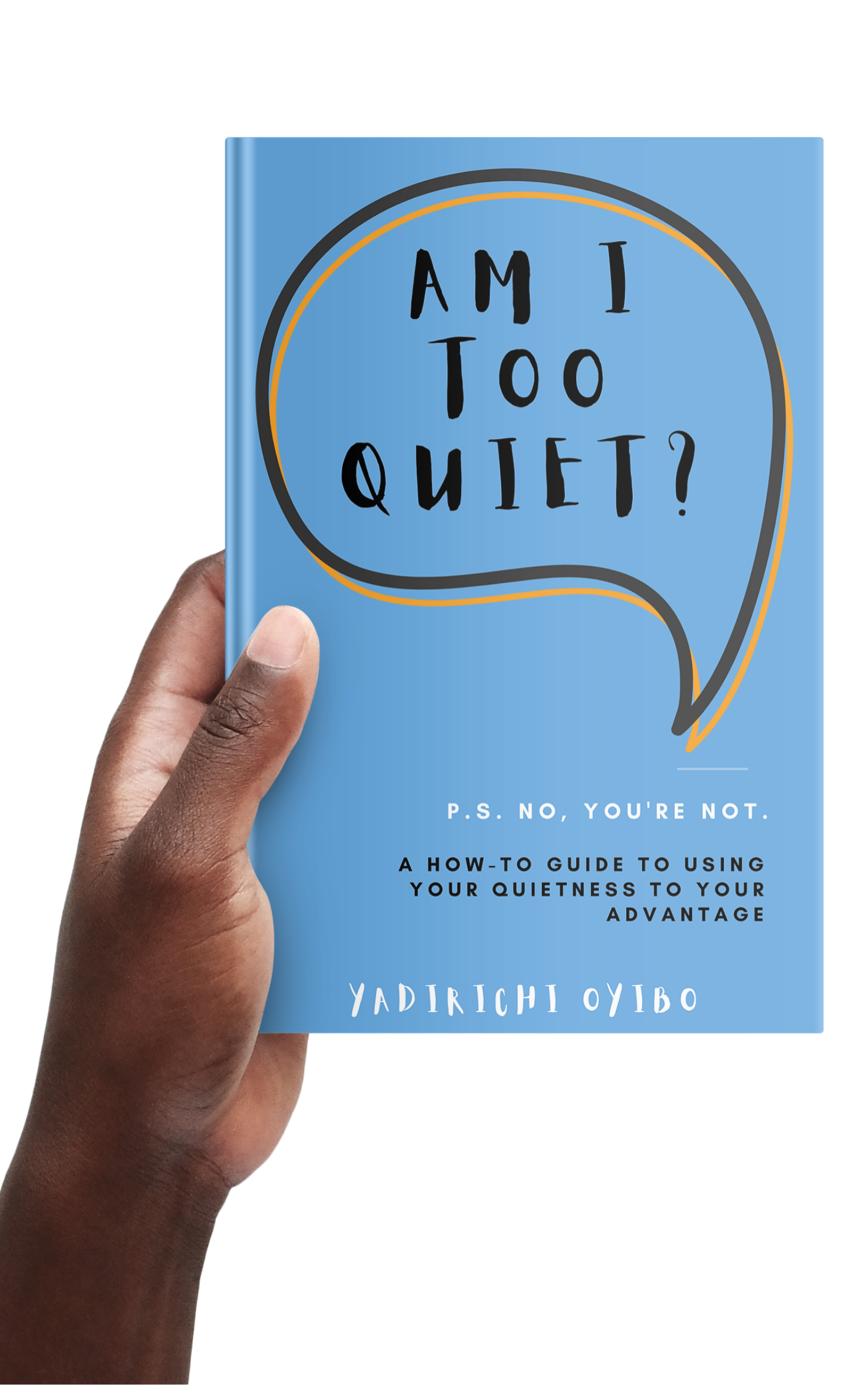Why INFJ ENFJ Relationships Make the Perfect Pair 90% of the Time
Photo by Brian Lundquist on Unsplash
As an INFJ who has an ENFJ mother, sister, and romantic partner, I believe I’m the best person to talk about the INFJ and ENFJ relationship in detail.
Do ENFJ and INFJ get along? Yes, it’s one of the most lowkey extraordinary pairs where both sides work for the better good, without making a big fuss over it. Most of it is because of the similarities in the ENFJ and INFJ traits.
If you take a good look at their cognitive functions, they are not exactly the same. They are lined up in sequential contrasts that create a harmonious balance when they are together.
But if you don’t want to solely rely on the function stack to prove why the ENFJ INFJ compatibility is the bomb, let’s take a deeper dive into their behaviors and personalities.
A Little More About INFJs (the simplest explanation ever)
An INFJ (Introverted, Intuitive, Feeling, Judging) friend is that person who somehow always texts you at the exact moment you’re spiraling, even if you didn’t say a word. They listen like they’ve got a PhD in you—always catching the things you didn’t even realize you needed to say out loud.
They’ll stick by you through your messiest moments, gently nudging you toward better choices without making you feel judged. And when you achieve something, even the smallest thing, they’ll hype you up like you just cured world hunger.
But don’t push their boundaries—they’ll give and give, but the second you take them for granted, they’ll retreat so quietly you might not even realize they’re gone until you miss them.
When it comes to dating an INFJ, it feels like starring in a movie where someone finally gets you. They’re the type who’ll remember that you hate garlic but secretly love when people surprise you—so they’ll plan date nights with exactly that kind of detail.
They’re calm when you’re freaking out, always trying to figure out how to make you feel safe and loved, even if it’s just by holding your hand in the right moment.
But the thing is, they want depth, not just surface-level cute. If you’re all talk and no follow-through, they’ll know, and they won’t stick around. But if you show them you’re real? You’ll have someone who loves you in a way that feels sacred.
Let’s Talk About ENFJs (no big grammar)
An ENFJ (Extroverted, Intuitive, Feeling, Judging) is the person who somehow convinces you to go after that thing you were too scared to try, and you actually believe you can do it because they’re so convincing.
They’re the first to throw you a surprise party when you need cheering up and will organize the whole thing down to the playlist that perfectly matches your vibe.
They’re natural cheerleaders who somehow make your problems feel lighter just by being in the room.
But they’re also the friend who’ll call you out (lovingly) when you’re being a little self-destructive, all while making it impossible to stay mad at them because, let’s face it, they’re usually right.
When dating an ENFJ, it’s like you being in the orbit of a star—they light up your life in a way that feels effortless, and somehow you always feel like you’re their main focus even though their calendar is packed.
They’ll write you little notes, remember your favorite coffee order, and introduce you to their friends because, to them, you’re part of the bigger picture.
They’re incredibly giving and will bend over backward to make you happy—but they expect you to show up, too.
If you’re distant or not pulling your weight, they’ll feel it deeply, though they might not say anything right away. But if you meet them halfway, they’ll make you feel like the luckiest person alive.
A Breakdown of what an INFJ with ENFJ feels like…
An INFJ and ENFJ together are like a cosmic duo—one quietly brewing magic behind the scenes and the other out there rallying the troops.
The ENFJ will pull the INFJ out of their shell, planning spontaneous adventures and encouraging them to share their big ideas with the world.
Meanwhile, the INFJ grounds the ENFJ, giving them the depth and quiet understanding they secretly crave but rarely find. They’ll have those late-night, soul-baring conversations where time seems to disappear, both feeling like they’ve finally met someone who truly sees them.
The ENFJ will shine in social settings, but they’ll always look for the INFJ in the crowd, like, “Hey, are you okay?” And the INFJ will quietly remind the ENFJ to slow down when they’re spreading themselves too thin.
Together, they’re a balance of action and reflection, big dreams and quiet purpose, and while they might butt heads over how much energy to put out into the world, their shared value of authentic connection keeps them deeply bonded.
To sum it all up, the ENFJ and INFJ compatibility is a relationship where both feel like they’ve found someone who matches their intensity but balances their blind spots, even for the female INFJ and male ENFJ compatibility.
Disclaimer: The above-listed traits are the healthy version of these personalities. If you meet an unhealthy INFJ or an ENFJ in an unhealthy psychological state, it would feel like the total opposite.
Why INFJ-ENFJ Relationships Work Well:
They have well-balanced communication dynamics:
When INFJs and ENFJs communicate, it’s like two people speaking the same emotional language but with slightly different accents.
Both prioritize meaningful, open conversations—they’re not here for surface-level chitchat.
An ENFJ will naturally take the lead, opening up with their warmth and charm, and the INFJ, who’s usually guarded, will feel safe enough to share what’s on their mind.
It works because the ENFJ knows how to draw people out, and the INFJ has this way of making the ENFJ feel truly heard in a way few others can.
Where things get interesting (and sometimes messy) is in how they process conflict.
INFJs need space to marinate in their thoughts, piecing together how they feel before they can articulate it. Meanwhile, ENFJs are action-oriented—they want to address the issue right now so it doesn’t fester.
It’s not a clash so much as a difference in timing. When ENFJs lean into their patience, and INFJs push themselves to communicate sooner than they’re fully ready, magic happens.
The key is for both to stay in tune with the other's rhythm. ENFJs need to resist the urge to take over every conversation, giving the INFJ time to open up in their own way.
INFJs, on the other hand, need to reassure the ENFJ that their silence isn’t avoidance—it’s just their process.
In ENFJ INFJ relationships, when both sides prioritize transparency, the relationship thrives because they genuinely want to understand each other, and that shared intention bridges any gap.
2. Their emotional connection and intimacy is deep:
The emotional connection between INFJs and ENFJs runs deep—like, "finish each other’s sentences and know what the other person’s feeling before they even say it" deep.
Both crave relationships that are built on trust, meaning, and vulnerability, so there’s this unspoken agreement that neither is here to play games.
ENFJs have this incredible way of making INFJs feel seen, gently coaxing them out of their inner world with warmth and encouragement. And INFJs, in return, create a kind of sacred space where the ENFJ feels safe enough to drop their “always-on” persona and just be real.
But here’s the balancing act: INFJs need their alone time like it’s oxygen, and ENFJs? They recharge through connection.
When this isn’t handled well, the ENFJ might feel like the INFJ is pulling away, and the INFJ might feel overwhelmed by the ENFJ’s energy. The sweet spot happens when both recognize that these differences aren’t personal.
The ENFJ learns to let the INFJ retreat without feeling rejected, and the INFJ makes the effort to show up for the ENFJ in moments that matter, even when they’d rather be hiding in their cozy little cocoon.
What makes this pairing work so beautifully is their shared empathy. Both are emotionally intuitive, so they naturally pick up on each other’s needs.
This creates a trust that feels almost effortless—like they just know they can lean on each other. When ENFJs bring their openness and INFJs bring their depth, the result is a connection that’s not only intimate but transformative.
3. The strengths of INFJ-ENFJ relationships are complementary:
INFJ-ENFJ relationships feel like two puzzle pieces clicking into place.
Their differences aren’t opposites—they’re complementary. ENFJs bring this electric, outward energy that draws people in, while INFJs have this quiet, thoughtful depth that keeps things grounded. Together, they balance each other out.
The ENFJ helps the INFJ experience the world, while the INFJ teaches the ENFJ the beauty of slowing down, reflecting, and digging beneath the surface. It’s a dynamic that feels both energizing and comforting.
What really sets this pair apart is their shared vision for a meaningful life. They’re both deeply passionate about growth, whether it’s improving themselves, supporting each other, or making a difference in the lives of others.
Whether they’re volunteering together, starting a creative project, or just having late-night conversations about their dreams, their goals naturally align because both are driven by the same core values: authenticity, connection, and purpose.
And the mutual inspiration? Off the charts.
ENFJs’ enthusiasm and optimism make the INFJ believe in possibilities they’d never considered, while INFJs’ wisdom and depth push the ENFJ to think more critically and reflectively. They’re like emotional and intellectual workout partners, constantly encouraging each other to stretch and grow.
At their best, they’re not just partners—they’re each other’s biggest cheerleaders and most trusted confidants, creating a dynamic that feels both empowering and unshakeable.
Liking this article? Join our Introvert Club→
How to Make Your INFJ-ENFJ Relationships 100% Better
1. Learn each other’s decision-making approaches:
INFJs and ENFJs approach decisions differently. This can work beautifully if you’re mindful.
INFJs lean heavily on their intuition, often making choices based on what feels right after some internal reflection. ENFJs, on the other hand, are focused on maintaining harmony—they’ll instinctively consider how decisions impact others.
To navigate this, ENFJs should give INFJs time to process their thoughts, while INFJs can help ENFJs by voicing their feelings earlier in the decision-making process. When both approaches are respected, decisions feel balanced and inclusive.
2. Manage conflicts without anger:
Conflict between an INFJ and ENFJ can be rare, but when it happens, empathy and calmness are your superpowers.
Both types naturally avoid confrontation, so the challenge is addressing issues without sweeping them under the rug.
ENFJs should be mindful not to overwhelm INFJs with immediate problem-solving, while INFJs can help by expressing their concerns before frustration builds.
Recognizing stress triggers (like an INFJ feeling emotionally drained or an ENFJ feeling unappreciated) can prevent unnecessary clashes. You should approach conflicts with kindness and a mindset of "we’re on the same team," and you’ll strengthen your bond every time.
3. Work together to overcome obstacles:
When challenges arise, it’s all about playing to each other’s strengths.
ENFJs excel at open discussions, so they can create a safe space for dialogue, while INFJs bring their gift for deep reflection to find thoughtful solutions.
In many cases, active listening is key.
ENFJs should give INFJs time to process and speak without interruption, and INFJs can reassure ENFJs by engaging actively in the conversation.
When both partners feel heard and respected, even the toughest obstacles become opportunities for growth.
4. Have a routine for effective communication:
Communication is where INFJ-ENFJ relationships truly shine, but even great communicators need intentionality.
Regular check-ins about feelings, needs, and boundaries keep the relationship strong and prevent small issues from growing into bigger ones.
The most important thing is not to guess, no matter how attuned you are to the other person’s feelings. When you both prioritize transparency, your trust deepens, and the connection thrives.
5. Maintain your individuality:
While the connection between INFJs and ENFJs can feel all-encompassing, maintaining individuality is vital.
INFJs need alone time to recharge, and ENFJs thrive on social interaction—both should respect these needs without guilt or judgment.
ENFJs can encourage INFJs to take their space when needed, and INFJs can show up for ENFJs during key social moments.
This is something I had to learn the hard way—for every INFJ and ENFJ romantic relationship, when you support each other’s independence, you’ll avoid feelings of suffocation and create a relationship where both partners feel free to grow.
6. Do activities to strengthen the bond:
When it comes to shared passions, it’s the glue that holds this pairing together.
Volunteering, working on creative projects, or even just having deep conversations over coffee can deepen your connection. I mean, me and my partner volunteer together for many causes, and it’s amazing.
ENFJs’ enthusiasm and INFJs’ thoughtfulness make for an incredible team, whether you’re planning an event, solving a problem, or simply dreaming about the future together.
You should choose activities that allow each of you to showcase your strengths and celebrate your shared values—and you’ll find your bond growing stronger with every experience.
Pin this ↓
Over to you
The INFJ and ENFJ relationship can absolutely work, and when it does, it’s often a deeply fulfilling match.
These personalities are both idealists at heart who crave meaningful connections and purpose, which means they’re naturally drawn to each other’s depth and vision.
The ENFJ brings energy, optimism, and a knack for making things happen, while the INFJ offers wisdom, reflection, and emotional grounding.
They also have differences—like the ENFJ’s need to be constantly "on" and the INFJ’s need for solitude—which can create friction. But if you communicate openly, these differences can actually balance the relationship beautifully.
As an INFJ currently with an ENFJ in my life, I endorse this pairing because it thrives on shared values, mutual respect, and a whole lot of emotional understanding. When you’re in sync, it feels like you’re unstoppable, making each other better and stronger as a team.
Was this article insightful? Share your thoughts below. I’d love to hear them.
Live Your Best Quiet Life
Get the Am I Too Quiet? book →














